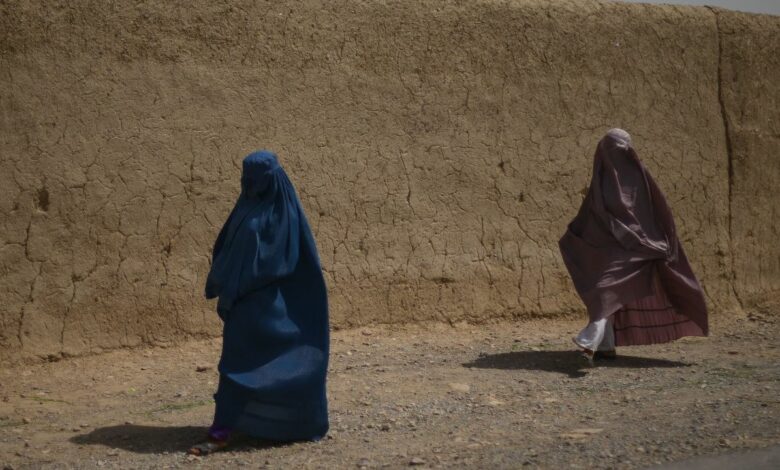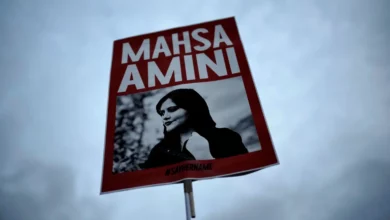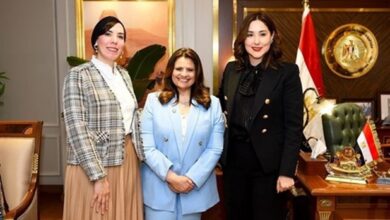
At least half a dozen major foreign aid groups have said they are temporarily suspending their operations in Afghanistan after the Taliban barred female employees of non-governmental organizations from coming to work.
“We cannot effectively reach children, women and men in desperate need in Afghanistan without our female staff,” aid organizations Save the Children, Norwegian Refugee Council and CARE International said in a joint statement Sunday.
“Whilst we gain clarity on this announcement, we are suspending our programmes, demanding that men and women can equally continue our lifesaving assistance in Afghanistan,” said the statement, which was signed by the heads of the three NGOs.
Another aid group, the International Rescue Committee, said that of the more than 8,000 people it employs in Afghanistan, more than 3,000 are women. “If we are not allowed to employ women, we are not able to deliver to those in need,” it said in a statement on Sunday, announcing it was pausing operations in the country.
Afghanaid also suspended its work in Afghanistan following the Taliban’s move, while Islamic Relief said it had been forced to “temporarily suspend non-lifesaving activities in Afghanistan.”
The Taliban administration on Saturday ordered all local and international non-governmental organizations (NGOs) to stop their female employees from coming to work, according to a letter by the Ministry of Economy sent to all licensed NGOs. Non-compliance will result in the licenses of said NGOs being revoked, the ministry said.
David Wright, chief operating officer for Save the Children International, told CNN on Monday that the organization was unable to “reach tens of thousands of vulnerable mothers and children right across the country” because of the ban.
“We can’t get out to work because we need our female colleagues to help us get access to women and children. You can’t access young mothers or young children in education if you don’t have female staff, because it’s not appropriate in Afghanistan to have all-male staff dealing with young women or children,” he said.
In the letter, the ministry cites the nonobservance of Islamic dress rules and other laws and regulations as reasons for the decision.
“Lately there have been serious complaints regarding not observing the Islamic hijab and other Islamic Emirate’s laws and regulations,” the letter said, adding that as a result “guidance is given to suspend work of all female employees of national and international non-governmental organizations.”
The new restrictions mark yet another step in the Taliban’s brutal crackdown on the freedoms of Afghan women, following the hardline Islamist group’s takeover of the country in August 2021.
Although the Taliban have repeatedly claimed they will protect the rights of girls and women, they have in fact done the opposite, stripping away the hard-won freedoms for which women have fought tirelessly over the past two decades.
“The supreme leader is doing whatever he can… to make women as powerless as possible, even if there are other factions that say otherwise,” Afghan human rights activist Pashtana Durrani told CNN on Sunday.
“The Taliban don’t care. They want women to be as limited as possible, especially the supreme leader,” she added.
Earlier this week, the Taliban government suspended university education for all female students in Afghanistan.
In a televised news conference on Thursday, the Taliban’s higher education minister said they had banned women from universities for not observing Islamic dress rules and other “Islamic values,” citing female students traveling without a male guardian. The move sparked outrage among women in Afghanistan.
A group of women took to the streets in the city of Herat on Saturday to protest the university ban. Video footage circulating on social media showed Taliban officials using a water cannon to disperse the female protesters. Girls could be seen running from the water cannon and chanting “cowards” at officials.
Some of the Taliban’s most striking restrictions have been around education, with girls also barred from returning to secondary schools in March. The move devastated many students and their families, who described to CNN their dashed dreams of becoming doctors, teachers or engineers.
The United Nations on Saturday condemned the Taliban’s NGO announcement and said it would try to obtain a meeting with Taliban leadership to seek clarity.
“Women must be enabled to play a critical role in all aspects of life, including the humanitarian response. Banning women from work would violate the most fundamental rights of women, as well as be a clear breach of humanitarian principles,” the UN statement read. “This latest decision will only further hurt those most vulnerable, especially women and girls.”
UNICEF said the order was an “egregious rollback of rights for girls and women (that) will have sweeping consequences on the provision of health, nutrition and education services for children.”
Amnesty International called for the ban to “be reversed immediately” and for the Taliban to “stop misusing their power.”
The International Committee of the Red Cross (ICRC) said Sunday it was particularly concerned about the future of Afghanistan’s healthcare system and female patients.
The ICRC said that it supports 45 health structures in Afghanistan, including hospitals and medical schools. Among others, it pays the salaries of 10,483 health workers – 33% of whom are women.
US Secretary of State Antony Blinken also condemned the move Saturday. “Deeply concerned that the Taliban’s ban on women delivering humanitarian aid in Afghanistan will disrupt vital and life-saving assistance to millions,” he wrote on Twitter. “Women are central to humanitarian operations around the world. This decision could be devastating for the Afghan people.”
Taliban spokesman Zabihullah Mujahid said US officials should “not interfere in the internal issues of” Afghanistan.
“Those organizations operative in Afghanistan are obliged to comply with the laws and regulations of our country,” he tweeted Sunday, adding, “We do not permit anyone to state irresponsible words or make threats about the decisions or officials of the Islamic Emirate of Afghanistan under the title of humanitarian aid.”




